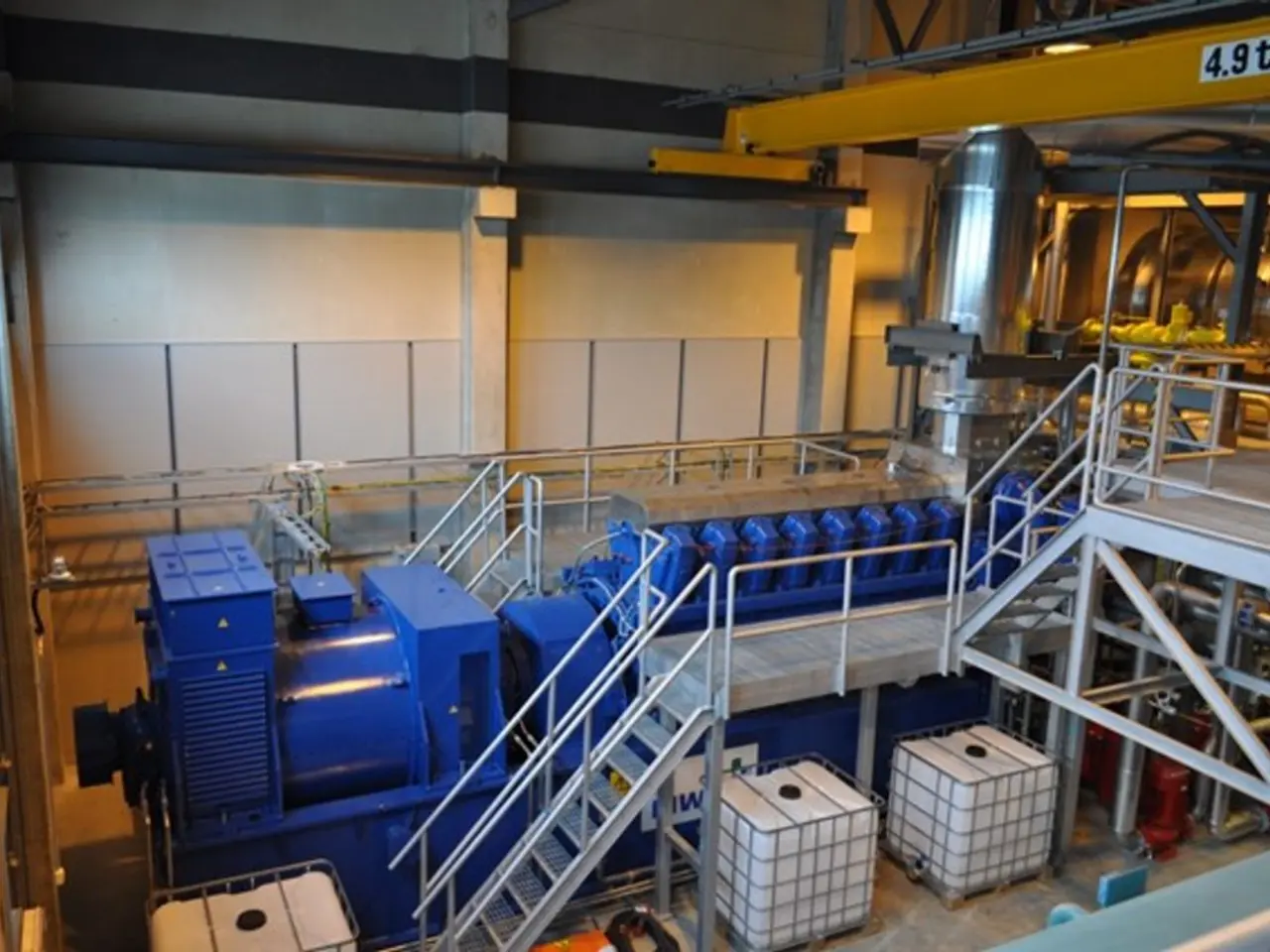Stock Market Victorious: VN-Index achieves unprecedented peak above 1,530 points
Vietnam's stock market continued its impressive rally in 2025, with the VN-Index reaching multiple record highs. The index climbed from around 1,371 points in late June to a new peak of approximately 1,546 points by late July, marking the highest levels in several years [1][3].
The recent surge in the VN-Index can be attributed to several key drivers. Robust sector performance, positive macroeconomic signals, domestic growth-supporting policies, strong liquidity, and market capitalization, and an attractive valuation all contributed to the upward trend [1][2][3].
Real estate, industrial zone real estate, technology, and retail sectors led the gains, with real estate stocks rising nearly 7% in late June [1]. Expectations of export recovery, increased investment capital, and supportive monetary policies such as anticipated US Federal Reserve interest rate cuts have boosted investor confidence [2].
Vietnam's government has been promoting public investment, easing credit conditions, reducing VAT, reforming the real estate legal framework, and preparing for a market upgrade in September 2025, all contributing to the upward momentum [2]. The average daily trading values have risen substantially, crossing US$1.4 billion in late July, with market capitalization exceeding VNĐ6.6 quadrillion (over US$280 billion) [3].
The Vietnam stock market’s Price-to-Earnings (P/E) ratio in July 2025 was around 19.4, which, while above its 5-year average, still reflects attractive valuation levels relative to growth potential [5].
Despite some caution due to potential short-term corrections from profit-taking and geopolitical uncertainties such as the Israel–Iran conflict, these were quickly absorbed by strong demand [1][2].
Leading stocks such as Vinhomes (VHM), VietJet Aviation (VJC), VPBank (VPB), SSI Securities Corporation (SSI), Gelex Group (GEX), VIX Securities SJC (VIX), HDBank (HDB), VNDirect Securities Company (VND), Southeast Asia Commercial Joint Stock Bank (SSB), and Asia Commercial Joint Stock Bank (ACB) contributed to the VN-Index's ascent.
Total trading value on the Ho Chi Minh Stock Exchange (HoSE) was over VNĐ37.4 trillion (US$1.43 billion) on Friday. The market capitalization on the HoSE is now over VNĐ6.6 quadrillion. Breadth of the market was positive with 207 stocks rising and 126 ticker symbols declining.
However, some blue-chip stocks, such as Vingroup (VIC), hindered market progress, down 1.6 percent. Foreign investors remained cautious, net selling over VNĐ26.8 billion on the southern bourse.
The cooling of profit-taking towards the end of the session further facilitated the index's rise. The market capitalization on the HoSE increased by nearly VNĐ42.3 trillion on Friday. The increase in the VN-Index was 10.11 points, or 0.66 percent.
The VN-Index closed at a new historical high of 1,531.13 points on Friday. The session reflected a robust recovery and signals a renewed confidence among investors in the Vietnamese stock market, setting the stage for future growth.
In the morning session, profit-taking pressure posed some challenges to the index's upward trend. However, they net bought VNĐ20.32 billion on HNX. The VN-Index was pushed back into the bullish territory in the afternoon session. This session reflects a robust recovery and signals a renewed confidence among investors in the Vietnamese stock market, setting the stage for future growth.
- The surge in Vietnam's stock market in 2025, as indicated by the VN-Index, can be projected to continue with the help of artificial intelligence (AI) models, taking into account factors such as robust sector performance, positive macroeconomic signals, and attractive valuation.
- Investors looking for growth opportunities might find it prudent to consider stocks like Vinhomes (VHM), VietJet Aviation (VJC), VPBank (VPB), SSI Securities Corporation (SSI), Gelex Group (GEX), and VIX Securities SJC (VIX), given that these contributed to the VN-Index's ascent and the market's current bullish trend, which is influenced by factors such as AI predictions and a renewed confidence among investors.




